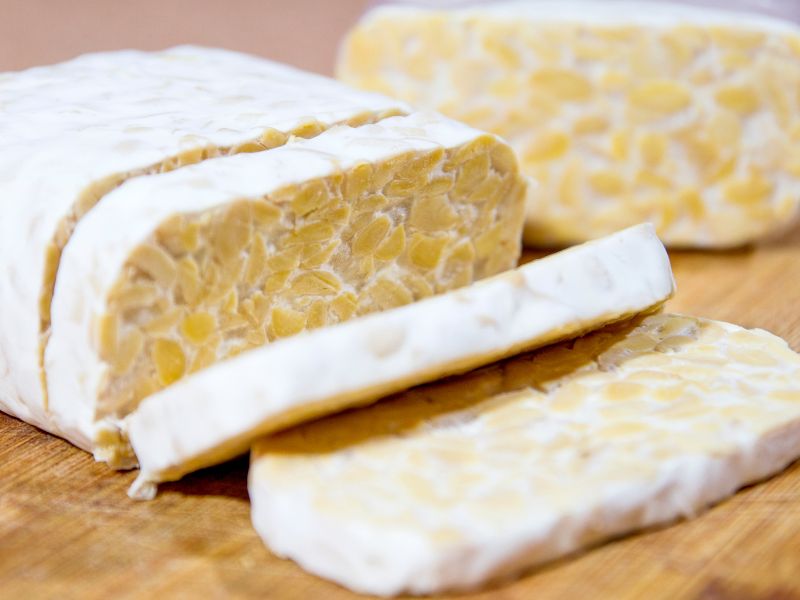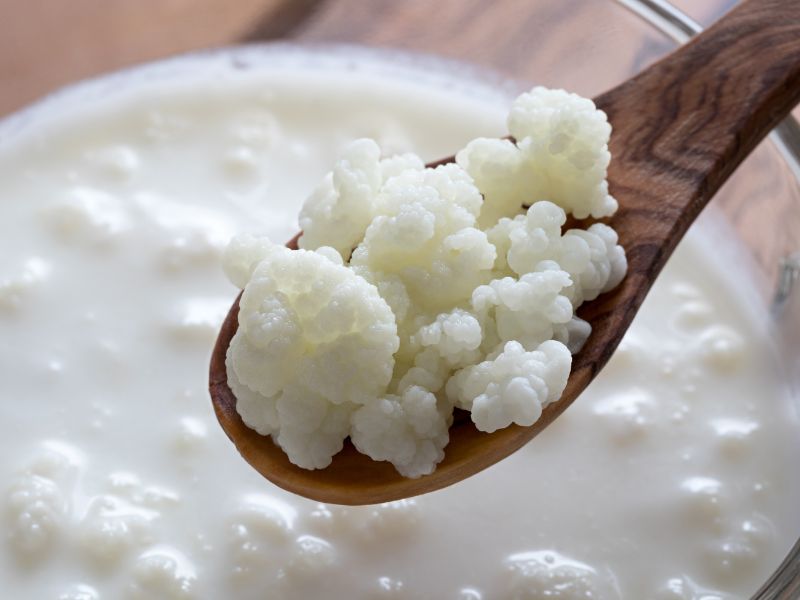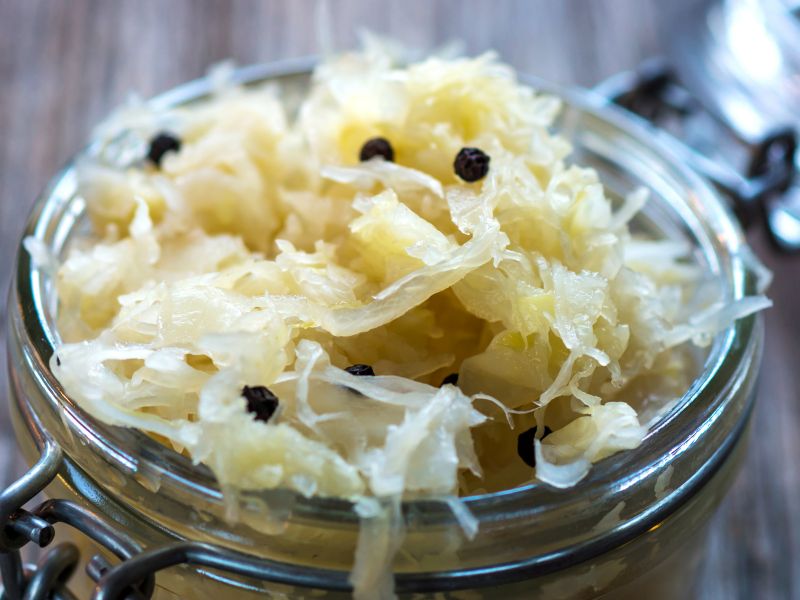“Eating fermented foods supports a healthy gut microbiome, aiding digestion and offering various benefits like improved mood, blood sugar control, allergy prevention, and enhanced immune function. These foods contain live, active bacteria created through natural fermentation processes, breaking down sugars into compounds like alcohol, CO2, and lactic acid, affecting taste, texture, and nutrition. Including fermented foods in your diet regularly helps diversify beneficial gut bacteria. Here are the top fermented foods to incorporate.”

Canva. com
Sauerkraut
“Sauerkraut, a centuries-old staple in global cuisine, is a live culture powerhouse, provided it’s not pasteurized. Look for refrigerated versions for maximum benefit. Packed with vitamins C and K, it offers potent anti-inflammatory properties. Cabbage, a key ingredient, contains cancer-fighting sulforaphane. While beneficial for many, those with IBS may need caution due to certain carbohydrates. Start with a small serving, like a tablespoon, to gauge your tolerance.”
Tempeh
“Tempeh, like tofu, is a plant-based protein derived from fermented soybeans. Although typically pasteurized and cooked, it may offer ‘para probiotics’—inactive microbes with health benefits. It’s a heart-healthy protein and fiber source, with one cup providing 34g of protein and 6g of fiber.”

Canva. com
Kimchi
“Kimchi, a Korean culinary staple, is a diverse form of fermented cabbage, often made with additional ingredients like radish, garlic, ginger, and spices. This flavorful dish is packed with beneficial bacteria, fiber, and antioxidants. It’s believed to have cholesterol-lowering, immune-boosting, and potentially cancer-fighting properties. However, like sauerkraut, it may trigger digestive discomfort in those sensitive to the carbohydrate mannitol. Begin with a modest ⅓ cup serving size to gauge your tolerance.”
Kefir
“Kefir, a fermented dairy product, promotes gut and heart health. Abundant in protein, potassium, and calcium, it’s an excellent choice, especially for those with lactose intolerance. Its versatility allows for seamless integration into various culinary endeavors, whether as a yogurt substitute or a flavorful addition to smoothies and marinades, providing a nutritious boost to your diet.”
